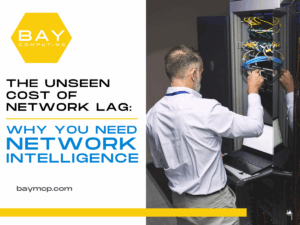How Do HIPAA Violations Happen Unintentionally
It’s easy to think health information is always kept private, but mistakes can happen, even with good intentions. HIPAA violations often happen unintentionally when staff accidentally share patient details, email information to the wrong person, or discuss private matters where others can overhear. Even small oversights like leaving computer screens unlocked or losing paperwork can put patient information at risk.
Busy work environments and new technology make these errors more common. Everyday situations, like talking about a patient in a hallway or sending a fax to the wrong number, are examples of how unintentional mistakes can lead to serious privacy issues. Learn more about common unintentional HIPAA violations and how easy it is for anyone in healthcare to make these mistakes without meaning to.
Common Causes of Unintentional HIPAA Violations
Unintentional HIPAA violations often happen because of everyday mistakes, overlooked details, or lapses in judgement. These errors can put private patient information at risk and lead to costly consequences.
Misdirected Communications
Healthcare staff may accidentally send sensitive information to the wrong person. For example, an email that contains patient records could be sent to a different patient who has a similar name. Sending faxes with protected health information (PHI) to the wrong phone number is another risk.
Mistakes like these often happen during busy shifts, especially if staff members are in a rush. The risk goes up when offices rely on outdated address books or auto-complete features in email systems. These communication errors are among the most common unintentional HIPAA violations.
Immediate steps to prevent misdirected communications include double-checking recipient details and confirming fax numbers or email addresses before sending any patient data. Training staff regularly on safe communication practices can lower the risk of accidental disclosures.
Improper Disposal of Protected Health Information
Throwing away documents with PHI in the trash instead of shredding them breaks HIPAA rules. Paper charts, labels, prescription bottles, or even notes left in open trash bins leave patient information exposed.
Electronic PHI that is not properly deleted from devices before disposal can also be a problem. Careless handling of both paper and electronic records during disposal can lead to data breaches.
Many facilities use locked shred bins and hire shredding companies, but lapses can still occur. Best practices include always shredding paper records and using secure, HIPAA-compliant methods to erase digital information before discarding or recycling devices. Staff should be trained to recognize which items require secure disposal.
Loss or Theft of Devices
Laptops, tablets, and smartphones hold a large amount of private patient data. If these devices go missing, any information stored on them could be accessed by unauthorized people.
Losing a USB drive or having a cell phone stolen at work are both examples of ways unintentional HIPAA violations occur. This can happen anywhere—from clinic hallways to parking lots.
Desks and bags are easy targets for theft, especially if devices are left out in the open. Encrypting all devices that store PHI, setting strong passwords, and never leaving electronics unattended in public areas will help keep data safe. Healthcare teams must report any lost or stolen devices immediately, so that proper steps can be taken.
Unauthorized Access by Employees
Employees sometimes review patient records they do not need for their job. This may be pure curiosity or a misunderstanding of what is allowed. Even when access is not used for malicious reasons, it can still count as a HIPAA violation.
Unintentional access often happens if staff are not clear about which records they can lawfully review. Sometimes, institutions lack systems or audits to catch snooping. It is important to update permission settings and monitor access logs.
Regular reminders and required training help employees understand privacy laws. Organizations should reinforce which patient records are confidential and the legal penalties for unauthorized viewing. Consistent monitoring can also detect problems early, helping avoid repeat incidents.
Contributing Factors to Accidental HIPAA Breaches
Accidental HIPAA breaches are usually the result of employee mistakes, lapses in system security, or improper handling of patient data. These issues are often linked to day-to-day actions rather than harmful intent.
Lack of Employee Training
Many employees who handle protected health information (PHI) don’t always know the exact rules or the best ways to keep data safe. Without regular and focused HIPAA training, staff may not understand what information is sensitive or how to respond to a potential breach.
Common problems include misplacing paper records, talking about patient details in open areas, or not recognizing phishing scams. New employees or those who don’t receive regular training updates are especially at risk for these mistakes. Effective training should explain what PHI is, how it can be shared, and what to do if a mistake happens.
Training also needs to cover the correct use of email, secure messaging, and other technology commonly used in healthcare. Regular training sessions, reminders, and clear policies help staff avoid simple but costly errors. Lack of training can lead to accidental disclosures of patient information, which is a common cause of HIPAA violations.
Inadequate Security Protocols
Weak or missing security measures make it easier for data breaches to happen by accident. For example, if computers and devices that store patient information are not password-protected or encrypted, anyone who finds a lost device can see private records.
Healthcare offices may use outdated software or fail to install security patches, leaving systems open to cyber attacks. Shared logins or easy-to-guess passwords also put data at risk. Strong security protocols help prevent the wrong people from accessing sensitive files.
Physical security is important, too. Unlocked cabinets, files left on desks, or missing security cameras can lead to unauthorized access to paper or digital records. Enforcing strict rules about how and where patient information is stored makes accidental breaches less likely. Poor security is often at the center of accidental HIPAA breaches.
Human Error in Data Handling
Simple mistakes are one of the biggest reasons for unintentional HIPAA breaches. For instance, a staff member might send a patient’s file or test result to the wrong email or fax number, or accidentally leave sensitive documents in a public space.
Rushing through tasks or not double-checking addresses and information increases the chance of error. Errors can happen with both paper files and electronic data. Even experienced workers can make these mistakes if they’re distracted, tired, or under pressure.
Humans are not perfect, but double-checking work, confirming recipient details, and using checklists can greatly reduce errors. Most accidental PHI exposures happen because of human mistakes, showing that even a small oversight can lead to a serious breach.
Protect Your Practice from Unintentional HIPAA Violations
Don’t let small oversights put your practice at risk. Bay Computing provides expert solutions to help you remain HIPAA-compliant and protect patient data. From secure communications to comprehensive employee training, we’ve got you covered. Contact us today to learn how we can protect your practice from costly HIPAA violations.




